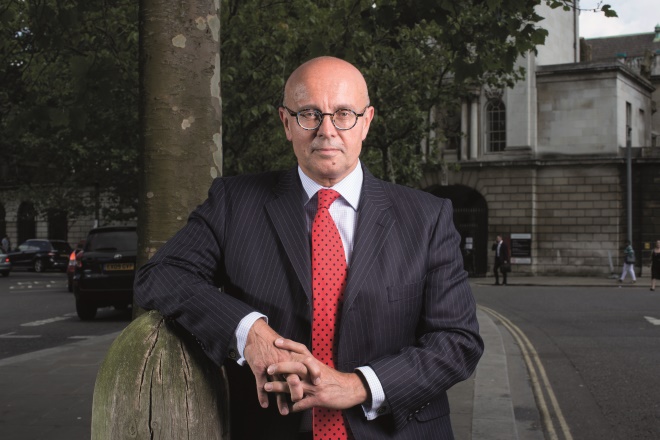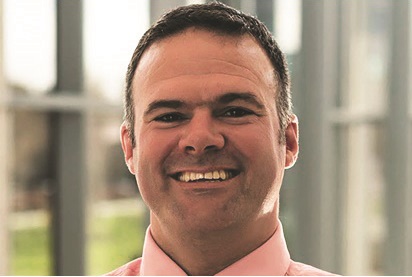
Shutterstock.com
Pharmacy leaders have warned that the community pharmacy sector will have to change significantly if recommendations for pharmacy made in the 10-year plan for the NHS in England are to be implemented successfully.
The plan outlines five broad changes for NHS provision over the next decade, including improving out-of-hospital care, reducing pressure on emergency hospital services, providing more personalised and digital care, and a move towards integrated care systems.
It also sets out how the government will spend an extra £20.5bn budget for the health service, including £4.5bn of increased investment in primary and community services.
As part of this funding, the plan describes how pharmacists and other healthcare professionals will be attached to “primary care networks” of GP surgeries that will each treat between 30,000 and 50,000 patients, with some of the money “used to substantially expand the number of clinical pharmacists”.
Pharmacists working for the networks will be supported to “find and treat people with high-risk conditions”; they will be expected to “undertake a range of medicine reviews, including educating patients on the correct use of inhalers”; and the networks would be able to take part in a “shared savings scheme” that would allow them to keep some of the savings made by medication reviews carried out by pharmacists.
The plan also states that the NHS will work with the government to make greater use of community pharmacists’ skills, but with the caveat that the NHS will also look at reforming reimbursement arrangements “and wider supply arrangements” for community pharmacies while “exploring further efficiencies”.

Source: Nic Bunce / The Pharmaceutical Journal
Sandra Gidley, chair of the English Pharmacy Board at the Royal Pharmaceutical Society, said the document is the first “where there has been consistent mentions of the role of pharmacists and we have to take encouragement from that”
Sandra Gidley, chair of the Royal Pharmaceutical Society’s English Pharmacy Board, told The Pharmaceutical Journal that the use of pharmacists in primary care networks is “really important”. She added that it will require “some further thought because some of the models are very GP-centric and some make fantastic use of pharmacists, and as a professional body it’s our job to ensure that pharmacists have a high profile role in those networks and that their skills are used”.
Gidley said the document is the first “where there has been consistent mentions of the role of pharmacists and we have to take encouragement from that,” but that more detail is needed.

Source: Jeff Gilbert
Simon Dukes, chief executive of the Pharmaceutical Services Negotiating Committee, said transformative change would be needed in the pharmacy sector
Simon Dukes, chief executive of the Pharmaceutical Services Negotiating Committee (PSNC), said the pharmacy sector would now have to work out how it fitted into the 10-year plan.
“For community pharmacy to make a real contribution to this plan we will need to see transformative change in the sector, shifting our funding from a focus on the dispensing of medicines to patient care and freeing up pharmacists’ time to offer more clinical services to patients,” he said.
“[The] PSNC has been pressing for reform of community pharmacy’s reimbursement arrangements for a number of years so we are keen to begin discussions on this.”
Mark Lyonette, chief executive of the National Pharmacy Association, said the plan “probably represents the start, rather than the finish, of discussions about NHS service provision in the period ahead”.
“A new, multi-year funding settlement for community pharmacies in England is needed to give pharmacy owners the confidence to invest in services that will meet the priorities described in the plan,” he said.

Source: CCA
Malcolm Harrison, chief executive of the Company Chemists’ Association, said further funding would be needed to “translate the ambition of this plan into reality”
Malcolm Harrison, chief executive of the Company Chemists’ Association (CCA), welcomed the involvement of pharmacy in the plans but called for more funding to “translate the ambition of this plan into reality”.
“We also look forward to working with the NHS and other partners to understand how clinical commissioning group (CCG) ‘pharmacy connection schemes’ will work to help deliver a health service that is fit for the future and how community pharmacy teams can play a greater role in the numerous prevention activities described, such as NHS health checks,” he said.
The long-term plan stated that CCGs would be developing “pharmacy connection schemes for patients who don’t need primary medical services” as part of a wider move to create “fully integrated community-based healthcare”.
Keith Ridge, chief pharmaceutical officer at NHS England, praised the plan as “fantastic news on pharmacy, meds op and reducing over-medication in #NHSLongTermPlan”.
Fantastic news on pharmacy, meds op and reducing over-medication in #NHSLongTermPlan – ‘Pharmacists have an essential role to play in delivering the Long Term Plan’ in community, primary care, urgent care, care homes, learning disabilities and prevention https://t.co/xFTf09RcWJ
— Keith Ridge (@keithridge1) January 7, 2019
Among the promises included in the plan, which was launched by prime minister Theresa May on 7 January 2019, are technological improvements, including genetic testing for a quarter of people with familial hypercholesterolaemia — dangerously high inherited cholesterol — in an effort to test 30,000 people in the next five years.
Some 345,000 more children and young people are expected to receive mental health help under the new plan through the expansion of community-based services while investments in earlier detection respiratory conditions could prevent 80,000 hospital admissions, NHS England said.
Niall Dickson, chief executive of the NHS Confederation, was cautious about the plan as a whole, saying that while it “looks set to promise a host of improvements”, politicians must “be honest about the trade-offs that will be required and that we are realistic about what can be achieved given the ever increasing demands of an ageing population”.


